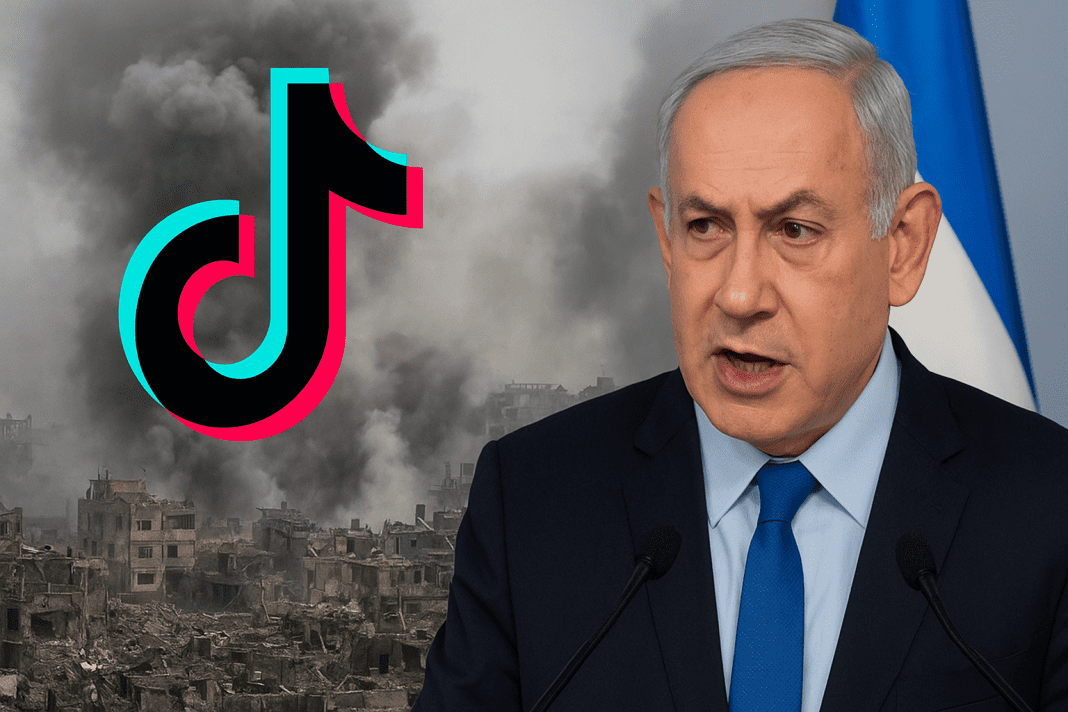The ongoing conflict in Gaza has placed Israeli Prime Minister Benjamin Netanyahu under growing international pressure. Following the escalation of violence after the October 7 attacks in 2023, Israel launched large-scale airstrikes and ground operations in Gaza. The country aims to eradicate Hamas and demilitarize the region to ensure it does not pose a security threat. Meanwhile, videos on TikTok showing the devastation in Gaza have gone viral, amplifying international scrutiny and criticism of Israel’s actions.
Israel Blames China Amid Gaza Conflict
However, the consequences of Israel’s military actions have drawn widespread criticism. On 16 September, the United Nations (UN) Independent International Commission of Inquiry released a report stating that Israel, under the guidance of its top leaders, has committed acts that could amount to genocide against Palestinians in Gaza.
In the face of rising criticism, Netanyahu has shifted focus to blaming foreign powers, particularly China. On 15 September, in front of 250 US lawmakers, Netanyahu accused China of supporting anti-Israel propaganda, particularly through platforms like TikTok. These accusations were repeated during another event on the same day, signaling Israel’s frustration over global scrutiny of its operations in Gaza.
West Bank Crisis: Unstable Alliance in Israel’s US Visit Amid Gaza Conflicts
TikTok and the Power of Social Media
TikTok, a Chinese-owned social media platform, has become a central point of Israel’s blame. Videos showing the devastation in Gaza have gone viral globally, amplifying international attention and criticism of Israel’s military actions. Netanyahu’s accusations suggest that China, through TikTok, is responsible for spreading anti-Israel content.
Experts argue that Netanyahu has misplaced these accusations. TikTok runs as a commercial platform and the Chinese government does not directly control it. Moreover, much of the content on TikTok depicts factual events in Gaza, including civilian casualties and displacement, rather than fabricated propaganda.
G20’s Crucial Showdown: Gaza Conflict Sparks Global Tensions
The Chinese embassy in Israel strongly rejected Netanyahu’s allegations, stating that his remarks “lack basis” and could harm bilateral relations. Chinese officials emphasized that TikTok, although a Chinese company, operates independently, and Israel’s actions in Gaza have caused the content shared globally.
The international exposure of Gaza’s reality through TikTok has intensified pressure on Israel, highlighting the suffering of Palestinians and raising questions about Israel’s military strategies. Social media has, therefore, played a significant role in shaping global perception of the conflict.
Diplomatic Tensions Between Israel and China Over TikTok
Netanyahu’s targeting of China has had diplomatic repercussions. Israel’s negative perception of China has grown due to Beijing’s stance on the Palestinian issue and potential military cooperation between China and Iran. Israel even attempted to use the Taiwan issue as leverage, a move viewed as highly sensitive by China.
Despite these tensions, China has expressed efforts to maintain and improve relations with Israel. In May 2025, the Chinese ambassador to Israel explicitly condemned Hamas’ October 7 attacks. Recently, Beijing agreed to join the New York Declaration on the Peaceful Settlement of the Question of Palestine and the Implementation of the Two-State Solution. This declaration emphasizes condemning Hamas’ attacks, demanding the release of hostages, and promoting the transfer of weapons from Hamas to the Palestinian Authority.
Chinese Foreign Minister Wang Yi highlighted on 19 September that Israel’s ongoing airstrikes and military operations in Gaza, as well as actions affecting Hamas figures in Qatar and the West Bank, violate international law. Wang also emphasized that such military strategies endanger regional stability and the potential for a two-state solution.
Barbaric Blaze: Kamal Adwan Hospital Faces Destruction Amid Gaza Conflict
China has repeatedly signaled its commitment to working with the majority of nations to pursue diplomatic solutions in Gaza, Palestine, and the broader Middle East. While Israel focuses on its military objectives, China has taken a clear stand in promoting international law and humanitarian concerns.
Netanyahu’s accusations against China over TikTok come amid Israel’s military escalation in Gaza and growing international scrutiny. Social media platforms like TikTok have amplified the humanitarian crisis, creating diplomatic tensions and raising global awareness of Israel’s military actions. China, while condemning violence and advocating for diplomacy, has strongly rejected direct blame for content shared on TikTok, emphasizing that Israel’s actions themselves have fueled global criticism.

